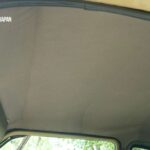After a car accident resulting in vehicle damage, receiving an insurance claim check can feel like a relief. Suddenly, you have funds in hand to address the dents and dings. However, life often presents other pressing financial needs. You might wonder, “Can I use this insurance money for something other than fixing my car?” Perhaps paying off credit card debt or planning a family getaway seems more appealing. The answer, as with many insurance-related questions, isn’t always straightforward. Understanding your options and the implications is crucial. Let’s explore when you can and cannot keep a car insurance check for yourself instead of using it for repairs.
Understanding Your Car Ownership: Outright vs. Loan or Lease
The most significant factor determining your freedom to use an insurance check is your car ownership status. Do you own your car outright, or are you still paying off a loan or lease?
Owning Your Car Outright: More Flexibility
If you hold full ownership of your vehicle, meaning you have the title and no outstanding loans, you generally have more flexibility. In most cases, yes, you can keep the car insurance check and decide not to repair your car. Insurance companies issue the check to compensate you for the damages. Once the check is in your hands, the decision on how to use those funds is largely yours. Insurance companies are primarily concerned with fulfilling their financial obligation based on your policy and the assessed damage. They typically won’t dictate how you spend the claim money if you are the sole owner.
Leased or Financed Vehicles: Lender’s Control
However, the situation changes significantly if you are leasing your car or still making loan payments. In these scenarios, you don’t have sole ownership. The leasing company or lender (bank, credit union, etc.) has a vested interest in the vehicle’s condition as it serves as collateral for the lease or loan.
Lenders and leasing companies are usually listed as “loss payees” on your car insurance policy. This clause ensures they are protected financially in case of an accident. When a claim is filed, the insurance company will often issue a check payable to both you and the loss payee. This dual payee arrangement is deliberate. It prevents you from cashing the check independently and mandates that the lender or leasing company must endorse it.
Typically, lenders and leasing companies will require you to use the insurance payout to repair the vehicle. They want to protect their asset and ensure the car retains its value and roadworthiness. Ignoring this requirement and using the funds for other purposes could violate your loan or lease agreement and potentially lead to legal complications, even being construed as a form of insurance fraud. Even if the check is mistakenly issued only to you, your loan or lease agreement likely obligates you to inform the lienholder about the accident and the insurance payout.
Important Considerations Before Skipping Repairs
Even if you own your car outright and are legally entitled to keep the insurance check, consider the potential downsides of not repairing your vehicle.
Insurance Policy Fine Print
While less common, some insurance policies might contain clauses that specify how claim payouts should be used, even for owned vehicles. Review your insurance contract carefully. Look for any stipulations regarding claim payments and repair obligations. Understanding your policy’s fine print is always a prudent first step.
Impact on Vehicle Value and Future Claims
Cosmetic damage might seem minor, but it can affect your car’s resale value, especially for newer vehicles. Unrepaired damage is also documented. If you file a subsequent claim for a new accident, your insurance company will have records of the prior damage. They will not pay twice to repair the same issues. This means if you decide to sell or trade in your car later, the unrepaired damage will likely reduce its market value.
Potential Safety and Mechanical Issues
Superficial damage can sometimes mask underlying problems. A seemingly minor fender bender could have affected the wheel alignment, suspension, or other mechanical components. Ignoring repairs could lead to more significant issues down the road, compromising your vehicle’s safety and performance. In some cases, seemingly cosmetic damage can escalate into safety hazards if left unaddressed. Furthermore, if unrepaired damage contributes to a subsequent accident, your insurance company might question the validity of the new claim.
When to Seek Legal Advice
Navigating car insurance claims and understanding your rights can be complex. If you are unsure about your obligations regarding an insurance claim check, especially if you are facing pressure from a lender or insurance company, it’s wise to seek professional legal advice. A car accident attorney can review your insurance policy, loan agreements, and the specifics of your situation to provide tailored guidance. They can help you understand your rights and ensure your interests are protected.
Conclusion: Weigh Your Options Carefully
So, can you keep a car insurance check instead of repair? The answer depends primarily on car ownership. If you own your car outright, you generally have the freedom to use the funds as you see fit. However, for leased or financed vehicles, lenders typically require repairs. Regardless of ownership, carefully weigh the long-term implications of not repairing your vehicle, considering potential impacts on resale value, future claims, and vehicle safety. When in doubt, consulting with a legal professional can provide clarity and peace of mind.
If you need expert legal assistance after a car accident, particularly in Los Angeles, consider reaching out to Ellis Injury Law for a free case review. Their experienced attorneys can help you understand your rights and navigate the complexities of car insurance claims.

